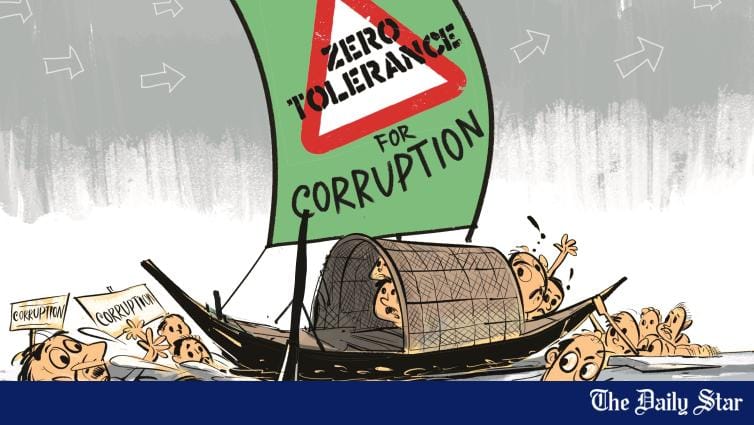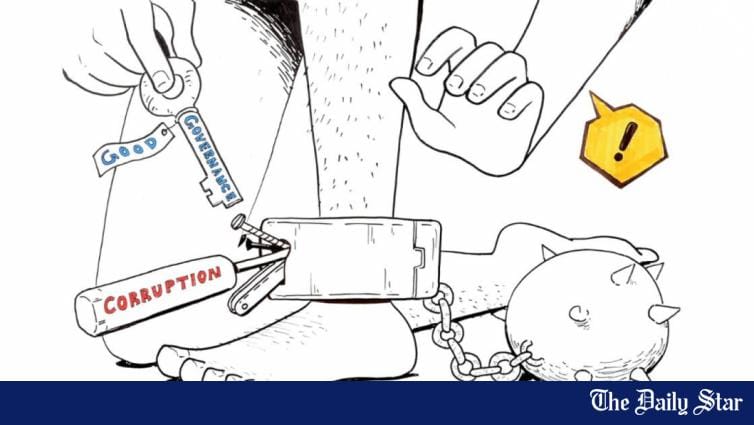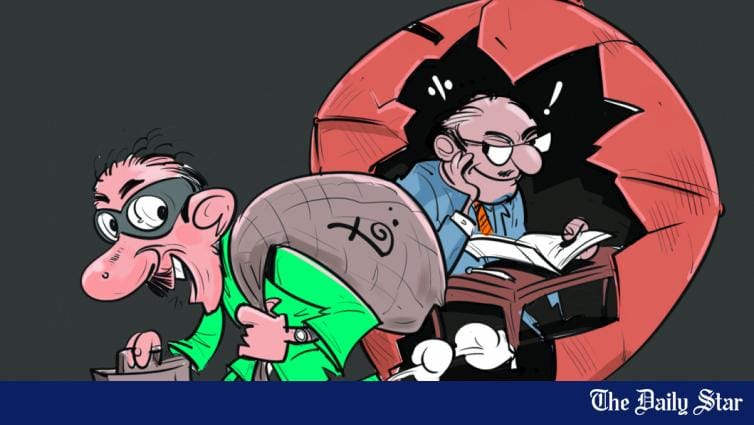Saif
Senior Member
- Joined
- Jan 24, 2024
- Messages
- 15,898
- Likes
- 7,990
- Nation

- Axis Group


Another public project gone awfully awry
Lack of progress in hi-tech parks project is unacceptable
Another public project gone awfully awry
Lack of progress in hi-tech parks project is unacceptable

VISUAL: STAR
It is totally unacceptable that a project that was slated for completion in three years has achieved only 14.34 percent of physical progress after seven years. This glacial and, frankly, ridiculous pace of work has been noticed in an undertaking meant to build 12 hi-tech parks in various districts. Considering its nature, you would have thought a government so intent on bringing about the country's digital transformation would take it more seriously, especially when most of the budget is being borrowed from outside the country, indicating its significance. But this is how the project has ended up, like so many others before it, according to a report citing findings of the planning ministry's Implementation Monitoring and Evaluation Division (IMED).
The government initiated the project in April 2017, with the strategically placed hi-tech parks envisioned to prepare the nation for the future by fostering a skilled workforce in the information technology sector. It was originally scheduled to be complete by June 2020, but has since seen its deadline extended multiple times. The latest proposal is asking for a 2027 deadline, and an increase from the original budget of Tk 1,796 crore to Tk 2,000 crore. Even though project authorities claim more progress than shown by the IMED report, the level of progress claimed to have been achieved is still miniscule and varies widely among the parks, with some barely even started.
How will the authorities justify this abysmal pace of work? As per our report, it has been attributed to various financial and logistical issues, including insufficient allocations, COVID-19 pandemic, land acquisition issues, etc. But this is hardly convincing. Those behind the project should have accounted for potential challenges and have contingency strategies in place to deal with them. A proper feasibility study would have resolved many of the issues that arose. Clearly, what has really slowed the progress is systemic neglect and mismanagement which, combined with a lack of accountability for public officials, have undone so many projects before. The economic implications of such frequent cost and time overruns cannot be stressed enough.
The hi-tech parks project was meant to be a cornerstone of Bangladesh's vision for a digital future. Instead, it has become a cautionary tale of how ambitious plans can falter without effective execution. We urge the authorities to put their foot on the accelerator and resolve all issues preventing the timely execution of this project.
Lack of progress in hi-tech parks project is unacceptable
VISUAL: STAR
It is totally unacceptable that a project that was slated for completion in three years has achieved only 14.34 percent of physical progress after seven years. This glacial and, frankly, ridiculous pace of work has been noticed in an undertaking meant to build 12 hi-tech parks in various districts. Considering its nature, you would have thought a government so intent on bringing about the country's digital transformation would take it more seriously, especially when most of the budget is being borrowed from outside the country, indicating its significance. But this is how the project has ended up, like so many others before it, according to a report citing findings of the planning ministry's Implementation Monitoring and Evaluation Division (IMED).
The government initiated the project in April 2017, with the strategically placed hi-tech parks envisioned to prepare the nation for the future by fostering a skilled workforce in the information technology sector. It was originally scheduled to be complete by June 2020, but has since seen its deadline extended multiple times. The latest proposal is asking for a 2027 deadline, and an increase from the original budget of Tk 1,796 crore to Tk 2,000 crore. Even though project authorities claim more progress than shown by the IMED report, the level of progress claimed to have been achieved is still miniscule and varies widely among the parks, with some barely even started.
How will the authorities justify this abysmal pace of work? As per our report, it has been attributed to various financial and logistical issues, including insufficient allocations, COVID-19 pandemic, land acquisition issues, etc. But this is hardly convincing. Those behind the project should have accounted for potential challenges and have contingency strategies in place to deal with them. A proper feasibility study would have resolved many of the issues that arose. Clearly, what has really slowed the progress is systemic neglect and mismanagement which, combined with a lack of accountability for public officials, have undone so many projects before. The economic implications of such frequent cost and time overruns cannot be stressed enough.
The hi-tech parks project was meant to be a cornerstone of Bangladesh's vision for a digital future. Instead, it has become a cautionary tale of how ambitious plans can falter without effective execution. We urge the authorities to put their foot on the accelerator and resolve all issues preventing the timely execution of this project.











































